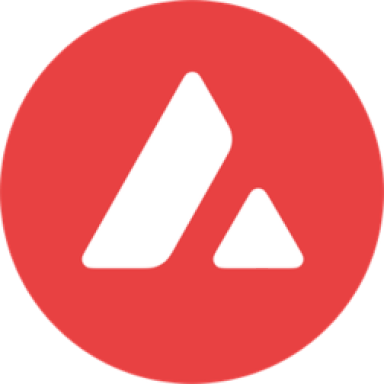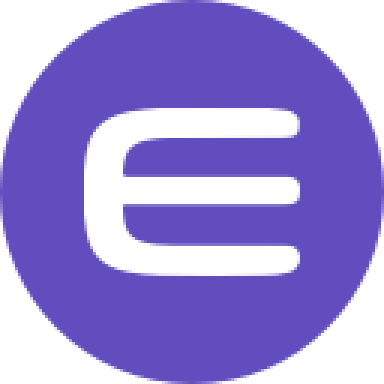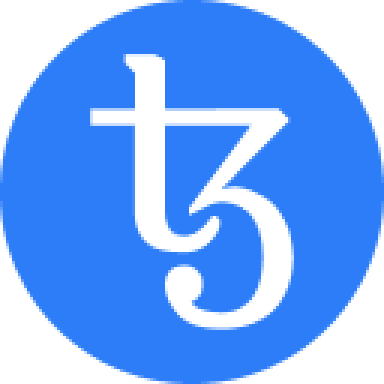Buy Dai in Canada
Dai made simple
Everything you need to know about Dai and how to start investing in it.
Current Price
$1.41 CAD
-$0.004596 (-0.32%) past 24 hours
- Market CapThe value of the entire supply of a specific cryptocurrency or token. It’s calculated by taking the price of a coin/token and multiplying it by the total number of that coin/token in circulation.
- $4,888,068,155.53
- Circulating SupplyThe amount of coins that have already been created and are available in the market.
- $3,444,525,175.75
- Total SupplyThe total amount of coins currently in existence minus any coins that have been burned or removed from circulation.
- $3,444,525,175.75
- 24h low - high rangeLow-high range over the past 24 hours.
- $1.36 - $1.45
- 7 day low - high rangeLow-high range over the past 7 days.
- $1.32 - $1.50
- 52 week low - high rangeLow-high range over the past 52 weeks.
- 0.9479309 - $1.53
Dai 101
DAI is a cryptocurrency that is pegged to the value of the U.S. dollar. The token is what’s known as a stablecoin. Unlike so many volatile cryptocurrencies, DAI aims to stay at a steely $1 value at all times.
The Ethereum-based token is rather different from more popular stablecoins like USDC and Tether, which maintain their peg to the U.S. dollar through claimed deposits of real money and loans. The companies that run those coins hold most of their cash in stable financial instruments, like money market funds, treasury bonds and commercial instruments.
By contrast, DAI is decentralized: no single entity is responsible for ensuring that the coin maintains its price of $1. Instead, DAI maintains its peg through a complicated system of overcollateralized loans. The coin is created whenever people want to borrow it via MakerDAO, the decentralized lending protocol responsible for DAI.
An overcollateralized loan is a loan in which the collateral is worth more than the loan itself. This ensures that even volatile cryptocurrencies, such as Ethereum, can be used to back DAI: even if the value of ether in reserve tanks, the theory goes, there should still be more than enough to cover the value of the DAI. When each loan is repaid, the related DAI is destroyed, keeping the token’s supply constantly in flux.
The collateralization ratio for the cheapest Ethereum deposit is set at 170%, meaning that $170 of Ethereum will allow you to withdraw $100 of DAI. If the price of Ethereum crashes, this loan will be liquidated, and you’ll have to pay a penalty fee. On the surface, this seems like a terrible deal: why would someone borrow $170 of Ethereum to receive just $100 of DAI, plus the threat of liquidation (and an associated penalty fee) if ETH crashes?
The main reason is that by taking out DAI, you’re putting your other cryptocurrency, in this case, ETH, to work. You could borrow $100 of DAI, sell it for ETH, and then deposit that ETH in the MakerDAO vault to borrow even more DAI. So long as ETH increases in value, you can essentially leverage your ETH position within MakerDAO’s decentralized lending protocol.
Alternatively, you could put all that DAI to work in another decentralized lending protocol that might pay outsized yields on your deposits. In effect, MakerDAO lets you earn income from decentralized finance protocols by taking out a loan to increase the size of your initial investment.
This model has remained relatively robust since DAI’s creation in December 2017. However, when the coronavirus pandemic caused an economic crash in March 2020, DAI almost slipped from its $1 peg, and the people who ran it — those who hold lots of Maker governance tokens — allowed it to be backed by USDC, a centralized stablecoin. Since the flash crash, the coin has reduced its USDC backing.

Why Wealthsimple Crypto?
Wealthsimple Crypto lets you buy and sell cryptocurrencies all in one easy-to-use app. And as Canada’s first regulated crypto platform, you can trust that your coins are in good hands. How simple is it?
- Sign up in minutes right from your phone or laptop
- Start trading crypto with as little as $1
- No account minimums
- No clunky dashboards — just one super simple app
- Best of all: you don’t need to be an expert in crypto or blockchain to get started
What can you do with Dai ?
You can use MakerDAO’s Oasis vaults to leverage your crypto holdings using DAI. This is an advanced trading strategy that requires you to fork up a lot of money up front — and could result in huge losses if the price of the volatile cryptocurrency you’re using to generate DAI crashes.
Many DAI users don’t bother with generating or destroying DAI through MakerDAO vaults, and simply use it as a stablecoin. Stablecoins are useful in the volatile crypto economy because they are, as the name suggests, stable. When markets crash, it’s a lot easier (and quicker) to sell a volatile cryptocurrency for a stablecoin than it is to sell it for real U.S. dollars. Plus, you can’t use real U.S. dollars in decentralized finance protocols (like yield farms, lending protocols and decentralized exchanges), but you can use DAI.
Is Dai a smart investment?
Crypto carries risks — but generally speaking, our advice (regardless of whether you’re investing in Dai or stocks) is: never invest what you can’t afford to lose. The smartest way to grow your money long term is with a diversified, low-cost portfolio that tracks the market.
How we keep your Dai safe
As Canada’s first regulated crypto trading platform, we’re required to meet certain requirements — like using only qualified custodians (like Coinbase Custody) for cold storage.
FYI: Wealthsimple Crypto is not an exchange itself. Instead, we work with multiple exchanges to give you the best Dai prices.
And to make sure your coins are extra protected, we’ve partnered with Coincover for an extra layer of security.
If you’re holding crypto outside of Wealthsimple, that’s no problem. You can safely transfer your Dai to your Wealthsimple account in just a few taps.
Other cryptos to explore
More info about Dai
Want to take a deeper dive? Check out these articles about Dai and the world of crypto.
What is Cryptocurrency?
Robert Stevens
Cryptocurrencies are a type of digital asset that run on blockchain technology. Here’s everything you need to know.
What is Blockchain? The Ultimate Guide
Robert Stevens
A quick primer on the building blocks needed to understand the basics of blockchain
Ready to get started?
Download the Wealthsimple Trade app, create your account, and start trading Dai with just $1. It’s that simple.
FAQs
DAI is an algoritmhic stablecoin pegged to the US dollar. This means that the crypto protocol behind it, MakerDAO, tries to ensure that the cryptocurrency is always worth one US dollar. The protocol accomplishes this through overcollateralized loans: if you borrow $175 of ETH on MakerDAO, the MakerDAO protocol creates $100 of DAI for you.
Overcollateralized loans compensate for the volatile prices of the cryptocurrencies that back DAI, ensuring that its price remains stable in the event of the market crash. This mechanism makes DAI a decentralized stablecoin – as opposed to centralized stablecoins like USDC or Tether, which maintain their pegs to the US dollars through vast reserves of cash and debt.
As of March 1, 2022, there are 9,698,845,693 DAI tokens in circulation, each of which is worth $1. This makes DAI the second largest decentralized stablecoin; the largest is TerraUSD (UST), which has a market cap of $13 billion. Decentralized stablecoins have smaller markets than centralized stablecoins: the two largest, USDC and Tether, have market caps of $54 billion and $80 billion, respectively.
Although DAI is worth a dollar, you can’t spend it in shops and it isn’t interchangeable for genuine US dollars. In fact, very few vendors outside of the crypto ecosystem accept DAI as a means of payment for goods or services. Still, DAI is a vital currency within the crypto ecosystem, and several marketplaces accept it.
You can swap DAI on a decentralized exchange for another cryptocurrency, or stake it within another decentralized finance protocol to earn yields. You can also sell it for a cryptocurrency to achieve something akin to decentralized leverage within Oasis, MakerDAO’s lending protocol. Lastly, several NFT platforms, among them the largest, OpenSea, accept DAI as a means of payment for non-fungible artworks.
Yep! When you open a Wealthsimple Crypto account, you can get started with anywhere from $1 to $1,500 instantly.
Generally speaking, the CRA treats cryptocurrencies as a commodity. Here’s what they say:
Any income from transactions involving cryptocurrency is generally treated as business income or as a capital gain, depending on the circumstances. Similarly, if earnings qualify as business income or as a capital gain then any losses are treated as business losses or capital losses.
Always keep solid records of any Dai transactions. If you use Wealthsimple Crypto to buy or sell cryptocurrencies, we’ll generate some of those tax documents for you.
Dai’s current market cap is $4,888,068,156.00.
The current price for Dai in Canadian dollars is $1.41.
Buying Dai with Wealthsimple is, well, simple. The first thing you need to do is open and fund a Crypto account in the Wealthsimple Trade app. You can connect your bank account and add up to $1,500 instantly.
From there, follow these steps:
- Tap the magnifying glass icon in the top right corner of your screen
- Type in Dai
- Tap Buy
- Enter the dollar value of cryptocurrency you'd like to buy and tap Continue
- Review the order details and tap Confirm order
You can choose between two different order types when buying Dai. A market order lets you buy or sell crypto immediately at the best available price at the time. A limit order lets you buy or sell crypto at a specific price or better.
You can withdraw funds from the cash balance in your Crypto account and move those funds to your bank account. Withdrawals typically take around 2 - 3 business days.
A crypto wallet — often called a “hot wallet” — is a location for holding crypto “on-chain” (i.e. linked to the blockchain versus off-chain cold storage.) Many users use wallet applications to help them manage their blockchain addresses, since each chain uses its own addresses.


















